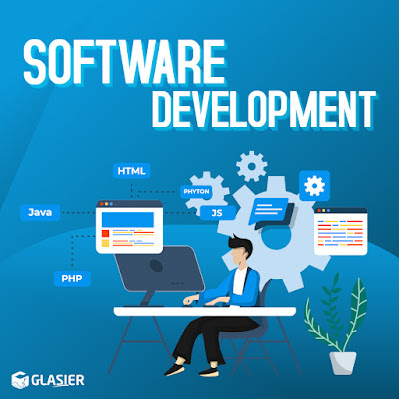INTERNET OF THINGS AND ITS APPLICATION IN BUSINESS
Introduction to Internet of Things
In this era of automation for small to large businesses, the Internet of Things (IoT) connects almost everything to the Internet and makes it possible for devices to talk to each other and be managed by software programs. It provides Businesses an edge over competitors. It also gives rise to new opportunities for businesses.
Everything from household appliances to energy-saving devices can now be controlled by software programmed to do specific tasks. In this blog, we will look at some of the IoT applications that are already available. We will further elaborate on some of the challenges and benefits organizations face as they use IoT in their industry.
In today’s world 3 big trends are happening with IoT –
Internet of Things refers to a network of connected devices that can communicate and function — just like an organism in the real world has a ‘these are the things I need to survive mentality and then connects with other pieces of equipment.
The concept is to build systems that make communication and control easier between different kinds of devices. Usually, these systems are connected to the physical world by a communication network, such as a cable or WiFi network. Some examples of IoT tech include intelligent traffic lights that communicate with traffic signals in your city to adjust the light intensity accordingly or wireless bathroom door locks that allow guests to communicate with each other while using the bathroom door without opening the main entrance.
The Internet of Things is the network of interconnected physical things to provide functions such as gas stations, supermarkets, and utility services in the physical world. The Internet of things has opened up new possibilities for people’s access to resources. For instance, if you have an old house that you want to sell on Airbnb, you do not need to get a special permit. You can connect with people who want to rent your old house and offer them your services or even sell things within your home if you have the necessary services related to it.
Advantages of IoT in Business:
It offers multiple benefits to Businesses from not using the obsolete procedure to automate the system, which is much faster than before with improving customer satisfaction. Through IoT, management is enhanced, and processes are standardized it increases employee productiveness.
IoT is not limited to a single device, and hence integration provides businesses an ability to get information about the devices from anywhere at any time. It offers comprehensive communication between connected devices and data analysis. Transferring data flow between devices and between business departments is easy and fast, saving time and cost. The significant benefit IoT can provide to Businesses is helping to improve the quality of services to customers through automation and reduced human intervention.

In IoT, the collection of material things and systems is interconnected and capable of sending the data back and forth. There are some considerable benefits to utilizing IoT in Business. For one, the cost of managing and maintaining infrastructure has decreased significantly. There are also security and management benefits, quality of life workflow, and paperless workflows: systems can be designed, tested, and implemented much easier through IoT than traditional methods.
The IoT network of physical things integrates business activities and provides flexibility in the adoption of business models. Through human errors are reduced from IoT, the unaccounted speed can be gain from the same and it saves time and money for the organization. Helps in better understanding of the business environment and accordingly analyses the opportunity and threads around the Business and take better collective decision making.
Today the customers are searching for products that provide them IoT for their convenience, which provides more revenue to the Business that adopted IoT in their business strategy.
The Disadvantage of IoT:
The Internet of things (IoT) has introduced a fantastic new way of connecting the physical world to the digital one. However, this connected world has also brought a lot of corresponding dangers. Suppose left unsupervised children will do anything to get hold of a cheaper gadget or idea. There are also adverse effects on an individual’s mental health and sense of security if left unsupervised.
There is not any intentional harm to Businesses through the application of IoT. Due to the potential risk of hackers, which can steal confidential source information if there are more devices connected to the network and an increased number of data shared through them, it is a significant concern. It also risks personal data to the critical infrastructure of Business.
As the network IoT increases, more devices are connected to it and hence it may become difficult for organizations to handle those devices and collect and manage the pool of information from those devices.
In IoT, there is any bug in one device located. The same may be found in all the connected devices as the devices are connected.
The implementation of IoT is not standardized; the different devices may face difficulty to connected as there is no international standard of capability for IoT.
Application of IoT:
The Internet of Things (IoT) refers to the collection of tools, infrastructure, software, and devices that make up the physical world interconnected by wireless or satellite networks. It can include sensors, processors, and storage media and communications devices. Some of the IoT platforms are Microsoft’s Azure IoT suite, Google Weave, Amazon Web Service IoT by Amazon, Calvin, an open-source IoT platform by Ericsson, etc.
The IoT provides users with capabilities they never imagined possible just a few years ago. It enabled businesses to scale or launch new services much faster than before
Using BLE or WiFi connectivity, the Internet of things connects everyday objects with others. This new technology can provide accurate data for any smart home and track inventory for companies.
Future of IoT:
There is no doubt that the internet of things (IoT) revolution is upon us. The idea of a connected world has never been more profound. Ubiquitous connectivity disrupts our daily lives and drives innovation from our phones to the wearables on our wrists. But just as the web has inaugurated an age of social media, so too is the world poised to witness the first truly global tech revolution. This revolution will fundamentally redefine our relationship with information and digital services, giving people new ways to interact, buy things, and like what they see.
The IoT is about creating sustainable, intelligent cities and hardware. Beyond just connecting devices in our homes and offices to the Internet, it offers a platform for collaboration and innovation between different industry players around a single theme. Companies are creating new apps to connect kitchen scales, lights, and sensors with other intelligent products.
The relational gamut of mobile device applications makes it hard to imagine our homes, offices, and cars operating without ubiquitous connectivity.
What will this future infrastructure look like?
What will its users look like?
What will safety requirements be?
How will insurance work?
All of this is up for grabs as the connected world evolves.


Comments
Post a Comment